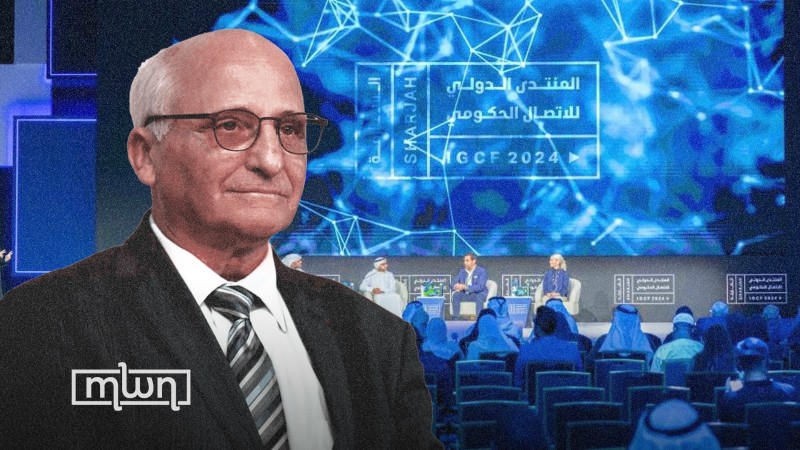From a young Moroccan dreamer to a world-renowned inventor, Rachid Yazami’s pioneering spirit and lithium battery breakthrough have powered a global technological revolution.
Renowned Moroccan scientist and inventor Rachid Yazami was honored this week for his scientific achievements, particularly his pioneering work on lithium-ion batteries, at the International Government Communication Forum (IGCF 2024) held in Sharjah, United Arab Emirates.
The IGCF, held from September 4-5 under the theme “Agile Governments: Innovative Communication,” brought together over 250 speakers to discuss the key opportunities and challenges facing governments and populations in the 21st century.
Its wide range of panels discussed topics from information warfare and the talent-driven economy to the digital future and the impact of innovative communication on governments’ ability to achieve broad development goals.
In a statement to the Moroccan News Agency (MAP), Yazami described this tribute as a source of pride and honor for Morocco and a “recognition of my invention of the lithium battery that I made when I was 26 years old.”
A journey of scientific discovery
Yazami’s fascination with science began at a young age. “I actually had a strong interest in science from a very early age. A significant event happened in my life around age 11. One of my teachers pointed at me and declared, ‘Rachid, you will be a chemist!’” he recounted in an interview with VinFuture Prize.
This prediction came true when Yazami was admitted to the Grenoble Institute of Technology in France, where he received his engineering degree in 1978. Just a year later, at the age of 26, he made his groundbreaking discovery of the graphite anode, a key component in lithium-ion batteries.
“It was an absolutely unforgettable day in my life,” Yazami said of the moment he first successfully intercalated lithium into graphite, causing it to change color from black to gold. “It felt like alchemy, converting black to gold.”
The impact of the graphite anode
Yazami’s invention of the graphite anode has had a profound impact on the development and proliferation of lithium-ion batteries. “In 2019, 10 billion batteries were produced worldwide. Ninety-eight per cent used the anode. Every cell phone, electric car, storage has my anode,” he noted in an interview with The Register.
The global anode material market is predicted to grow to $10 billion by 2025, with the anode estimated to account for 10 to 15 percent of the total cost of a lithium-ion battery.
Despite the immense commercial success of his invention, Yazami lamented a missed opportunity for his home country.
“If this company in France said, ‘Oh, we think it may be improved, we have no evidence, but maybe it’s interesting, let’s file a patent that doesn’t cost as much money.’ I think it will have brought something between $100-150 billion. Only the invention of the graphite anode,” he said, referring to a French company that passed on the chance to patent his discovery in the early 1980s.
The future of battery technology
The future belongs to clean electrical energy, Yazami asserted in his speech during the opening session of the IGCF 2024, citing the progress made in lithium-ion batteries due to significant advances in the field.
These advancements include improved safety measures in high-temperature zones, reducing charging time to less than 20 minutes, increasing the range of electric vehicles, and extending battery life.
Yazami highlighted the growing demand for lithium-ion batteries in the international market, which is expected to reach a capacity of 4,700 GWh/h, worth more than four trillion dollars by 2030.
This latest prize comes as the Moroccan scientist continues to push the boundaries of battery technology. His company, KVI, recently developed a new fast-charging technology that can fully charge a high-density battery in just ten minutes, seven times faster than a Tesla.
“The target is to go to 300 [watt hours per kilogram]. To my knowledge there is no 300 watt hour per kilogram on the market — not yet. There are some prototypes, but when you increase the energy density there are some problems with life and safety of battery,” Yazami explained, highlighting the challenges and trade-offs in battery development.
Safety is also a major concern for Yazami. “We can’t prevent fire in extreme situations, but at least we can have signs before it happens,” he said, proposing the idea of a sensor that measures battery expansion due to heat and alerts the user well in advance of any potential issues.
Looking to the future, Yazami predicted the rise of electric airplanes for personal use within the next 20 to 30 years and a shift in battery manufacturing to Europe. “Currently the EV market is in the EU, and the manufacturing is in China,” he observed. “That’s a problem.”
source/content: moroccoworldnews.com (headline edited)
______________

Rachid Yazami, honored for pioneering lithium battery invention.
______________
MOROCCO